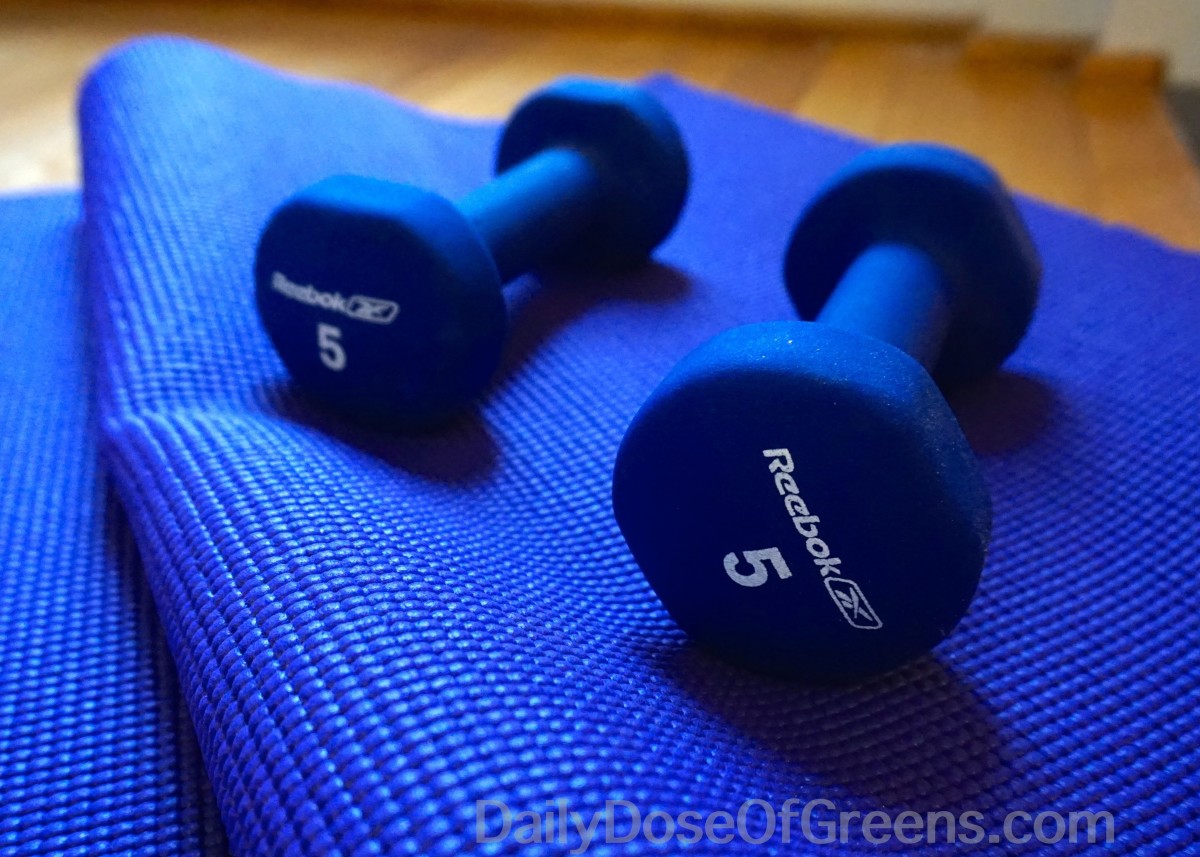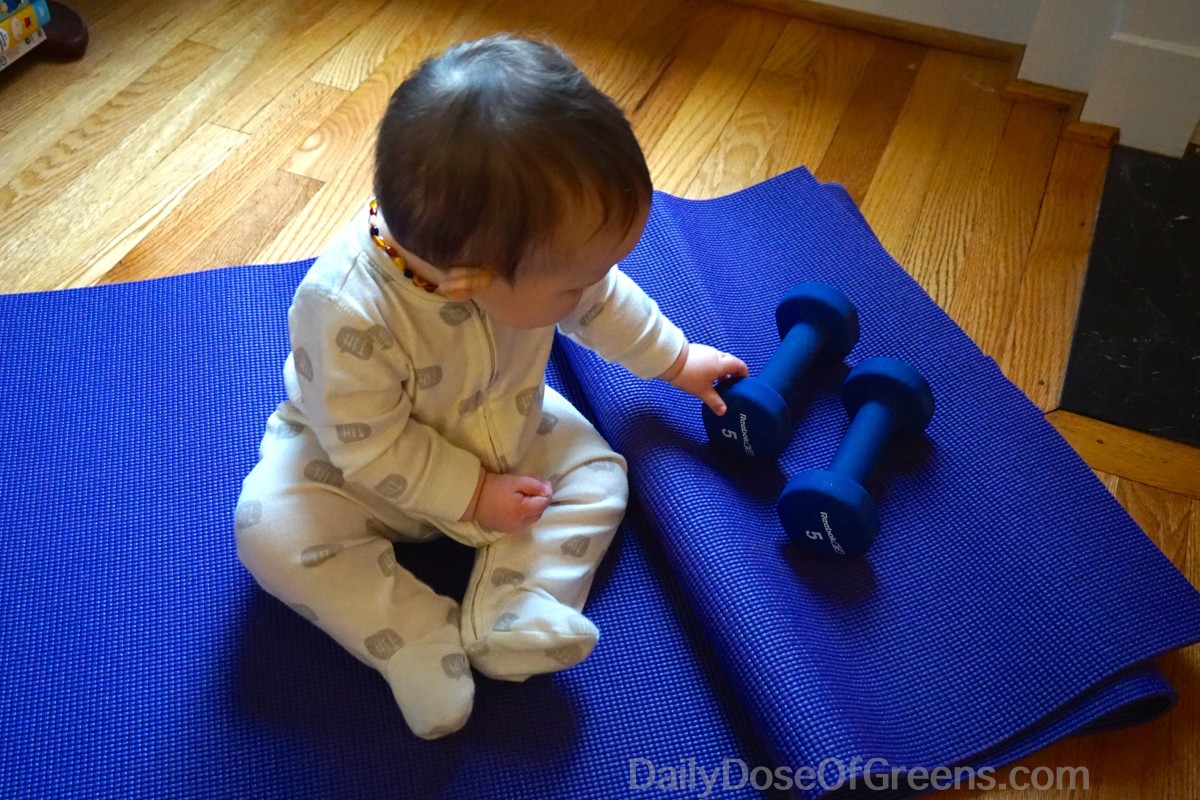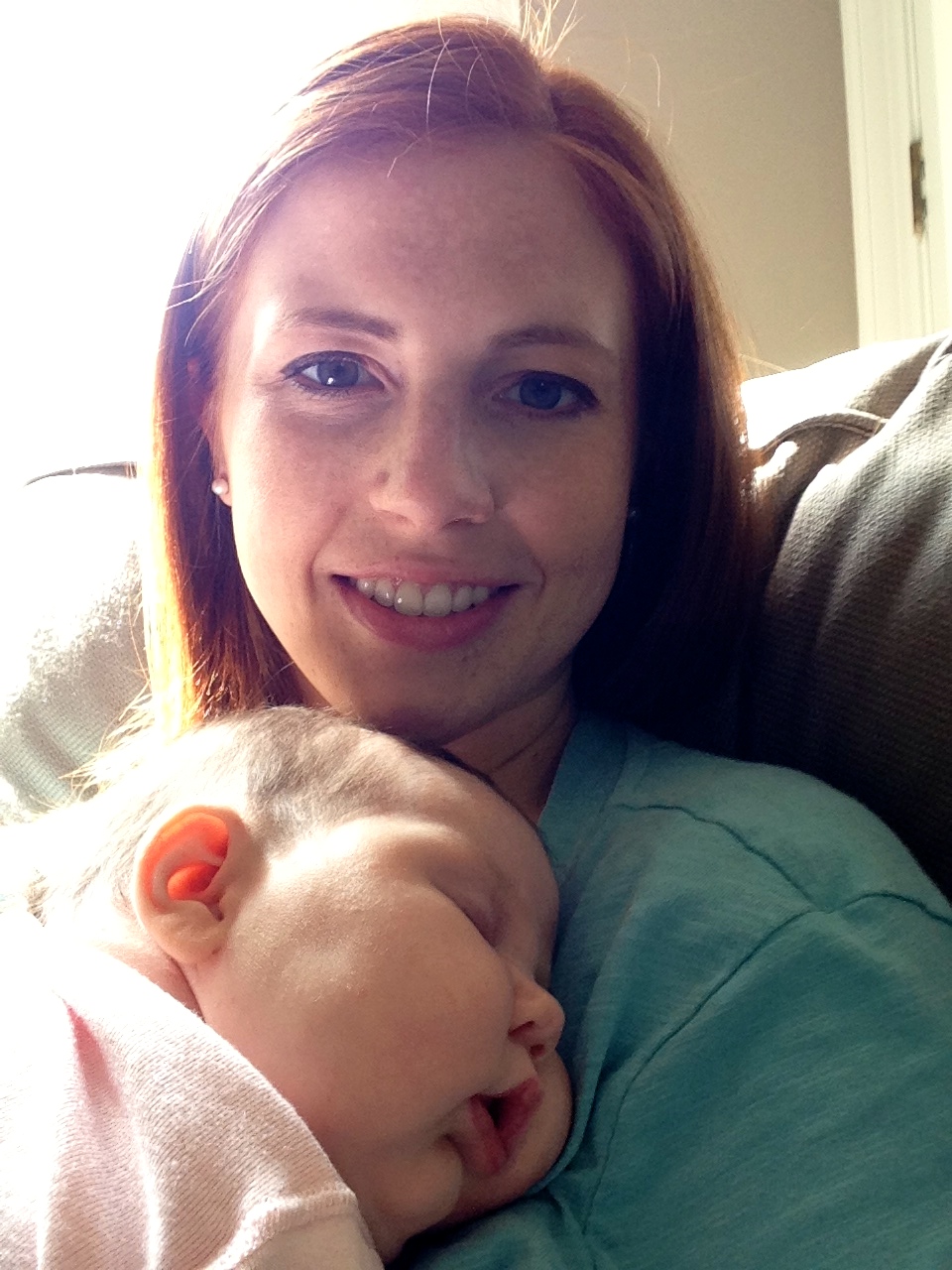[This is part 3 of my pregnancy nutrition series. To learn about prenatal supplements or what to eat during pregnancy, go here.]
Prior to getting pregnant, I had envisioned exactly how I thought my weight management would go during and after pregnancy: I would eat right and exercise regularly to avoid excess weight gain during pregnancy, then a few weeks postpartum, start a serious exercise program to lose the expected few pounds of extra weight.
If you have had a baby, you are probably laughing at me right now. As with most of my expectations about pregnancy and postpartum recovery, these had to be revised. I will say that I ate well and did not gain much excess weight during my pregnancy, but regular exercise was nearly impossible. I was in the middle of my dietetic internship, so time was limited, but what made exercise less likely was the utter exhaustion. While many women suffer from nausea during the first trimester, I was basically crippled by my constant need for a nap. Sometimes all I had energy to do was go to the grocery store before I needed another nap. At that point, my exercise was limited to walking during my internship rotations and wherever I needed to go when running errands.
The next revision was with my postpartum weight loss plan. I’m not going to go into all of the gory details, but my labor was very long (44 hours) and hard. By the end of it all, my downstairs was a wreck. There was tearing, which required stitches and caused swelling that made it painful to sit down for two weeks. Even 8 weeks postpartum, I could feel pain down there after walking just a couple of blocks. Additionally, I was determined to breastfeed, so calorie restriction was out of the question until my milk supply was well established.
I’m not telling you this to scare you. I’m just letting you know that it’s okay if you don’t meet your weight loss goals right after you have your baby. I’m currently 9 months postpartum and am just now returning to my pre-baby weight. For many women it takes much longer, and that’s totally fine. As a mother, your first priority is to take care of your family as well as letting yourself heal.
If you’re currently pregnant and are concerned about your weight gain, let me give you some guidelines. It is likely that your OB will be keeping up with your weight gain to make sure the baby is growing properly, so you probably don’t need to worry about it.
Pregnancy Weight Gain Guidelines
- If you are of normal weight (BMI* 18.5 – 24.9) prior to conception, you should gain 25-35 lb.
- If you are underweight (BMI < 18.5), you should gain 28-40 lb.
- If you are overweight (BMI 25 – 29.9), gain around 15-25 lb.
- And if you are obese (BMI > 30), try to limit weight gain to 11-20 lb.
*BMI (Body Mass Index) is a measure of body mass that is not entirely accurate for assessing weight status, but is widely used as a general standard. To calculate your own BMI, divide your weight in pounds by your height in inches squared. Then multiply that number by 703. Example: [150 lbs / (60 inches)²] x 703 = 29.3 (overweight)
Please DO NOT count calories during your pregnancy — but when snacking, keep in mind that you are not actually “eating for two.” You do not need any extra calories during the first trimester, but as the baby grows you will need to increase your typical calorie intake by 340 calories in the 2nd trimester and 450 in the third.
Typical weight gain during pregnancy: 1 lb. per month during the first three months, then 1 lb per week thereafter (roughly)
DO NOT restrict calories during your pregnancy. If you feel that you are gaining weight too quickly, try increasing exercise and reducing your intake of processed junk food to decrease the rate of weight gain rather than lose weight.
If you decide to or are able to breastfeed, you will find that your appetite increases to ensure adequate milk production for the baby. In the first 6 months of breastfeeding, your body will require an additional 330 calories. In the next 6-12 months, you may need as many as 400 additional calories, depending on how much solid food your baby is eating at that time. I suggest keeping nutritious snacks on hand to prevent being tempted by junk foods.
Exercise During Pregnancy
Moderate exercise is encouraged during pregnancy because of its many potential benefits. It may reduce some of the common pregnancy complaints, such as backaches, constipation, bloating, swelling, and insomnia. It also promotes muscle tone, which is helpful during delivery. Thirty minutes of exercise on most days is recommended, but if all you can do is go for a walk, do it!
Of course you should avoid contact sports and heavy lifting, as you do not want to do anything that could harm the baby. Additionally, be careful during flexibility exercises because pregnant bodies produce a hormone called relaxin to allow ligaments to stretch to accommodate the growing person inside you. This hormone may allow you to stretch more than you should, leading to injury. So be careful!
Postpartum Weight Loss
As I mentioned above, you may realize that you need more postpartum recovery time than you thought. If you had a C-section or a prolonged and difficult labor, your first priority should be to rest and heal. Some weight loss coaches even instruct women not to worry about weight loss until they are one year postpartum. It’s important that you do what you’re comfortable with, however. Start by putting the baby in a stroller and walking around the block. Try to incorporate some light weight lifting with free weights after 8 weeks PP, if you can.
Because a lot of pregnancy weight is water weight, your weight will fluctuate a lot in the first two weeks PP. It will also take several weeks for your uterus to return to its original size. Not all of the extra pounds you see on the scale represent fat gain, so my rule is this: Don’t even step on a scale until your 6-week OB appointment. Just don’t. You can’t do anything about it yet, so why stress yourself out?
There will be plenty of time to lose those extra pounds, but your baby will only be this small and adorable once. Enjoy your new baby, rest, and take care of yourself and your family before stressing about your weight!
Note: These recommendations are for healthy women. If you have health conditions, listen to the specific advice of your doctor.





Sure! Is there something specific you’d like me to cover? Thanks for reading!
Hurrah! Finally I got a web site from where I can really get useful information concerning my study and knowledge.
The info for this post came from a mix of textbooks used during my dietetics studies. I make sure my sources are credible because I know there is a lot of misinformation out there. Thanks for your comment!
Thanks! Well I still feel like I’m figuring the blogging thing out, but my advice would be to write about what interests you, include photos, make sure you have good information, and utilize social networking. Aside from being a stay-at-home-mom, this is my job. It’s a lot of work, but it’s my passion so I love it!
Great post! As someone who is thinking of having kids in the next couple of years, this topic is always on my mind. (Maybe that’s weird?)